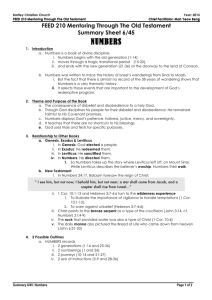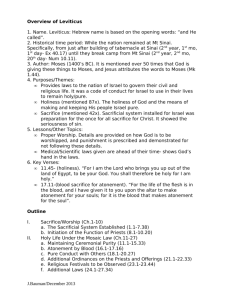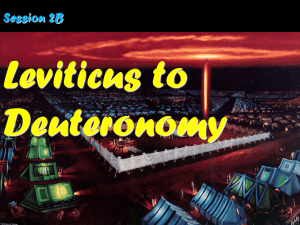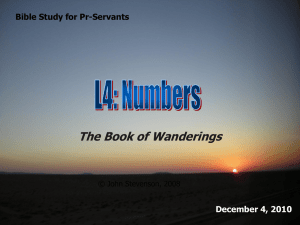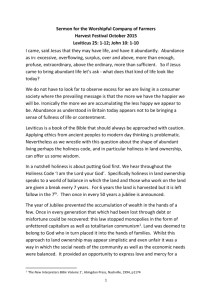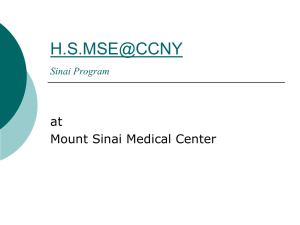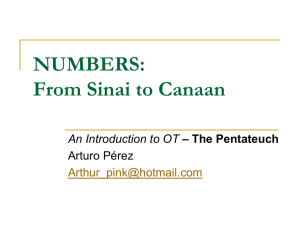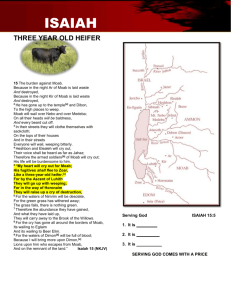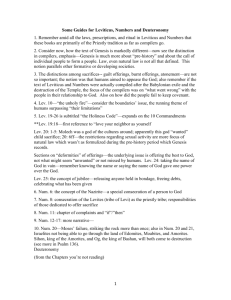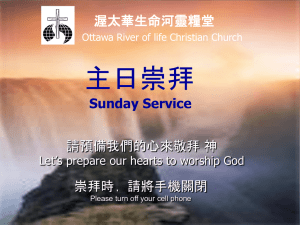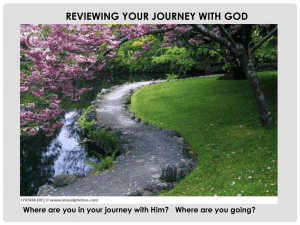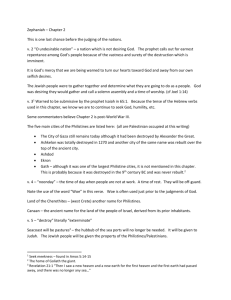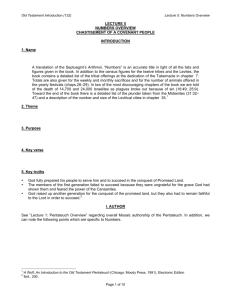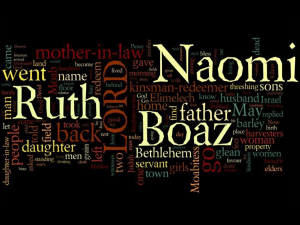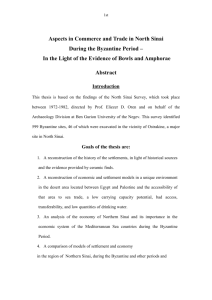Genesis tells the story of God*s reating a home for humankind
advertisement
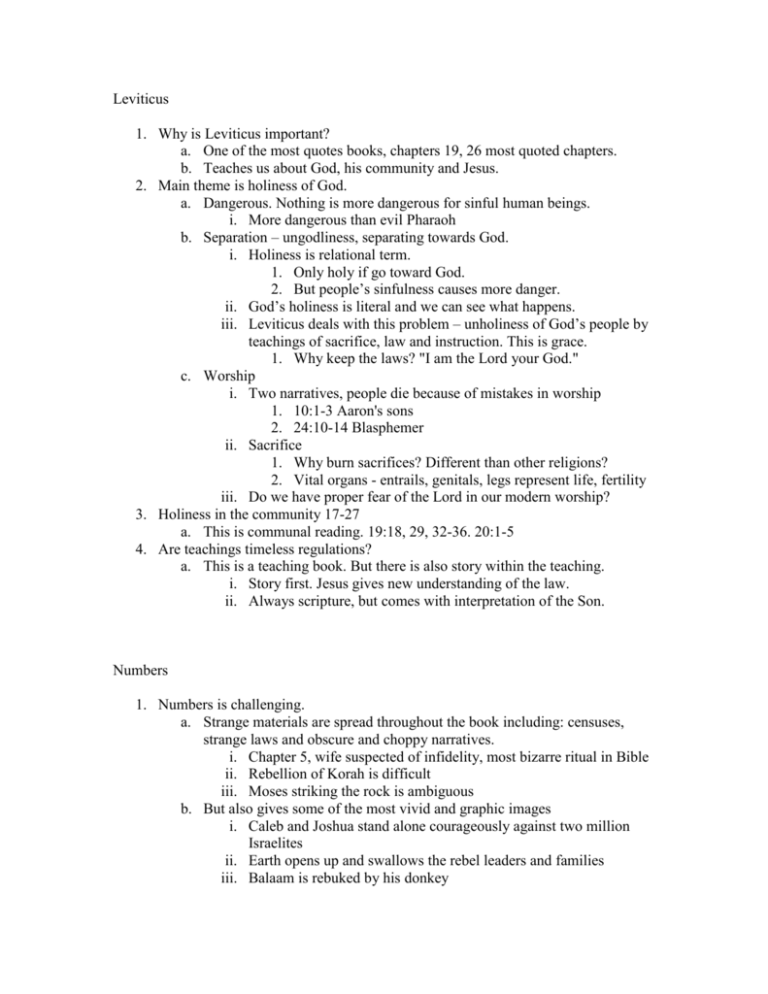
Leviticus 1. Why is Leviticus important? a. One of the most quotes books, chapters 19, 26 most quoted chapters. b. Teaches us about God, his community and Jesus. 2. Main theme is holiness of God. a. Dangerous. Nothing is more dangerous for sinful human beings. i. More dangerous than evil Pharaoh b. Separation – ungodliness, separating towards God. i. Holiness is relational term. 1. Only holy if go toward God. 2. But people’s sinfulness causes more danger. ii. God’s holiness is literal and we can see what happens. iii. Leviticus deals with this problem – unholiness of God’s people by teachings of sacrifice, law and instruction. This is grace. 1. Why keep the laws? "I am the Lord your God." c. Worship i. Two narratives, people die because of mistakes in worship 1. 10:1-3 Aaron's sons 2. 24:10-14 Blasphemer ii. Sacrifice 1. Why burn sacrifices? Different than other religions? 2. Vital organs - entrails, genitals, legs represent life, fertility iii. Do we have proper fear of the Lord in our modern worship? 3. Holiness in the community 17-27 a. This is communal reading. 19:18, 29, 32-36. 20:1-5 4. Are teachings timeless regulations? a. This is a teaching book. But there is also story within the teaching. i. Story first. Jesus gives new understanding of the law. ii. Always scripture, but comes with interpretation of the Son. Numbers 1. Numbers is challenging. a. Strange materials are spread throughout the book including: censuses, strange laws and obscure and choppy narratives. i. Chapter 5, wife suspected of infidelity, most bizarre ritual in Bible ii. Rebellion of Korah is difficult iii. Moses striking the rock is ambiguous b. But also gives some of the most vivid and graphic images i. Caleb and Joshua stand alone courageously against two million Israelites ii. Earth opens up and swallows the rebel leaders and families iii. Balaam is rebuked by his donkey iv. Phinehas saves Israel c. People grumble, grumble and grumble. “in the wilderness” i. Looks like human revolution will win. Kadesh, Korah, then Moab gives external and internal threats. ii. But the word of God changed the course of the study 2. Chronology Egypt to Sinai Ex. 12-18 3 months At Sinai Ex. 19 – Num. 10:10 11 months Kadesh Num 10:11 – 14:45 3 months Wilderness Num. 15 – 19 38 years To Moab Num. 20 – Deau 34 7 months a. Sinai and Moab are the longest sections b. Longest years is only 5 chapters 3. Order is to compare and contrast first and second generation of Israelites a. There are differences, but essentially, they are the same b. Book starts with first generation beginning their journey from Sinai and ends with second generation camped in Moab, ready to invade Canaan c. In between, moral failures in the wilderness by both generations. 4. Significance a. Yahweh’s character is revealed i. God lowers himself to fill the dwelling with his glory 1. Israel’s repeated grumbling shows God’s patience, tolerating extraordinary unfaithfulness 2. God saves the second generation that are just as sinful b. Israel’s character is revealed i. Incurable addiction to sinfulness 1. First generation saw God’s miracles in Egypt, then in the desert. Learned how far is too far in testing God’s patience. 2. Second generation knew nothing other than being God’s people. They are just as sinful. c. Reveals wilderness i. We think problem is that there is no life in the wilderness. But problem is never from the outside. Everytime they faced ordeal, God provides. Bread, water, meat. ii. Real problem is failing to embrace God’s word. Moses Deut. 8:3 Questions for upcoming reading 1. What is the main concern of Moses as he gives his final teachings and warnings to his people? 2. What do we learn about God in the narrative of Joshua? 3. Look closely to the theme of Covenants and oaths. (Gibeonites, Jephthah)
